
Sorrow
In those quieter hours where a
photograph might begin to weep,
the negatives of its memories flooding into
the darkened ink of its processed pigment,
there surfaces a song. At times, it’s nothing more than
the weep, keeping time to tenets of rhythm and
rouse. Upon its departure, the thought comes to rise:
was it the photograph you’d been so attached to,
or had it been the song all along…
Desiderata, Times Two
Lie, stir. After a while, our bodies are paintings —
carefully composed limbs, a smidgeon of unexpected
light. I lie on her lap, reading from Sylvia Plath.
She speaks of broken things, of tissue and thirst,
translucence, of days lashed with a silent gnawing,
written into the silences of my lover’s book — its
gathering of underlined lines and forgotten leaves.
I wish we could capture certain afternoons and
store them in casks or drawers. Sure, we have
memory, but it might still be worthwhile to have
something whose uncasking or undrawing sends
reverberations into the vulnerabilities of our skin
—an arousal, in stanzas; the inflection of opera.
The tenor, each measure, an errant surge in serif.
Shadows shift about in restlessness. Cadenza,
ravenous for finale, where even touch feels like
tremor, the torment of taste. Perfumed, her
sighs, with the kissed transference of some more
Sylvia Plath. I move the drapes and breathe
in the sea — the lighthouse to the east, reminding
me of home, of how almost everything lies east.
Impious lips; these afternoons of fermented olives
and whispering candelabra, burn, breathlessly lit.
As a boy, I thought you’d be safe, as long as you
could get yourself to a lighthouse. We are the myths
we swallow, its finely-seasoned inconsistencies.
I lick her language and inhale her hair, hoping
against hope, that I can get myself to a lighthouse.
Fidelities, in Time
Waiting for the sky to rip things apart
Writhing in the heat of this nameless Indian town
I write a few lines, scribble them out
I write some more, these splinters of the broken and
The healed. Hymns infiltrate the pores of our fears
Because hymns are nothing like prayers — they hold
Resonance for the earth and its cradled mysteries —
As I write, trying to weave things back to what they used
To be. The ocean’s soliloquy consummated by shores
Sends larks and gulls crashing against the tides
Our urgency for one another hangs by threads
The persistence of light pervading these beds
We’ve raised. I used to know things, you know
— Like in which direction the water will flow
Or how compulsion will react to the resistance of flight
Or how soil-loosened earth caves in on the sins
Of its flock. The religious radiance of rapture —
Floods of urge that rush through our veins
Two bodies hell-bent on the salvation of angels —
I write everything down, in the stuttering melody
Of vinyl-cracked rain. I dance the dance
Of a man who knows each time the weather has turned
That some things are best left on windowsills
On shelves where letters are often enough discarded
Like rain. I run wild on the skin of an empty beach
Waiting for the sky to rip things apart
Writhing in the heat of this nameless Indian town
Gathering shells, in case there’s a storm.
Home
I pick up a fistful of earth and try to memorise
the grains of sand. I gulp down a quantum
of sky, my mouth aching to hold on to the fluidity
of its stars. I submerge within a tidal wave of memories,
intent on negotiating the frequencies of the past
and the resonances of the now. If this is who we were
born to be — a collision of people, faith, loved ones,
and parable — then I’m glad it’s turned out this way.
Colluding as one, the grains, the stars, the memoirs,
and the lives spell out a name inked in light… India.
Delhi, With a Hint of Turmeric
Gali Paranthe Wali they call it, they could just
as well christen it Paradise Road. Its rowdy
visage, that roguish charm of a handsome film
villain, is a deep-fried collage of taste and myth.
On this crisp, primal morning, Delhi’s winter
fables arise to whispers from loud steel vessels
and large clay cauldrons, a finely amalgamated
infiltration of spice, the redolent immediacy of
inflamed chillies, the romantic resonances of
turmeric… Wanton, wild.
My rickety table of wood has seen better days,
but then again, so have I. We converge as one
in this narrow alleyway, lined end to end with
arrogant aroma, pride, and epochs, our parable
of inhale & exclaim bound by the prophecies of
stage, encore, masks, and fates. The dry, furious
crackle of batter courting oil, the majestic churn
of flour as it settles in lush, the meditative swirl
of a Sufi’s search for solace and sky, all of this
set to the frantic cascade of orders and voices,
an operatic parade thus fed through idle whims
and these exasperations of fire.
My flatbread paratha arrives, chest heaving with
the wholesome conviction of potatoes. Before
I’m done, the next one. This variation bears the
spicy potency of minced lamb, a combination
that cries for elegies unspoken. Blushing meat
simmers on skewers, my extinguished hunger
savours. What is man when held up against the
saffron-scented denouement of rich, rousing
romance — of vessel and flame; of repartee,
sharp, and marinade, thick; of this city tinged
with finely-seasoned bliss…
The old city, an instant hush, wrapped in the
alchemy of jade, of mosque, musk, and prayer.
Nizamuddin’s ripples, in densely-scented air.
This is India, the only prayer reverberates. A
microcosm dripping with aromatic moans, a
delicious confluence — creation, religion; nay,
salvation — and thus these histories unfold.
My alleyway bristles beneath the lush poetry
of texture, it dances, rebellious, the intoxicated
confessions of flavour. Within its passionate
caravanserai of colours, these choruses awake.
A morning filled with the crunchiness of hope,
and as these prayers hover like sparrows in the
air, the lingering aftermath of taste…
Excerpted from A Moveable East by Siddharth Dasgupta, Red River, pp. 146, Rs 300
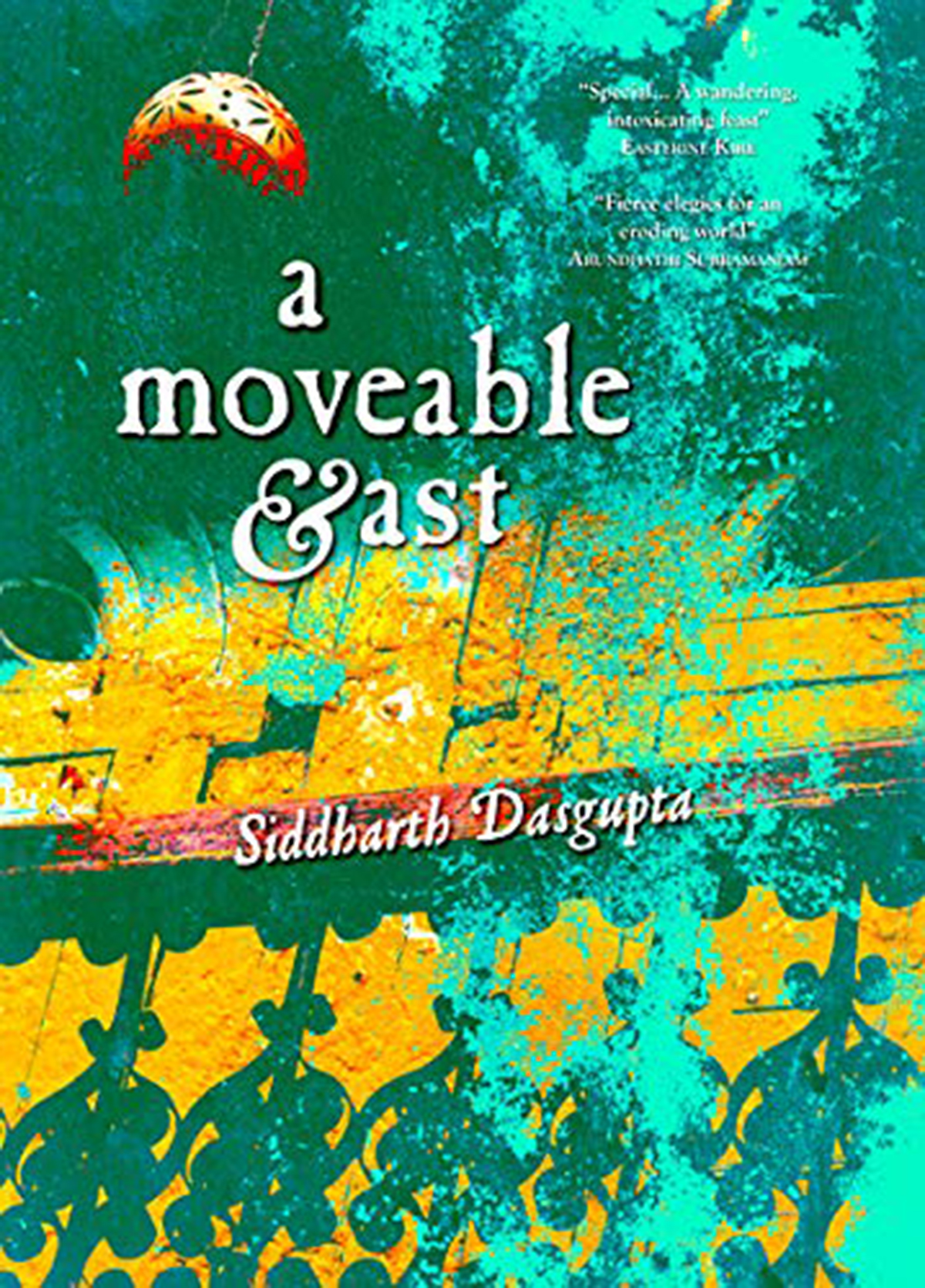
(These poems were part of May 2021 issue, which was delayed due to the pandemic and released on August 3)
More from The Byword
Comments
*Comments will be moderated






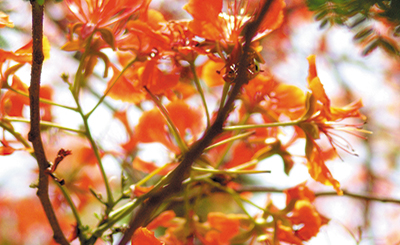
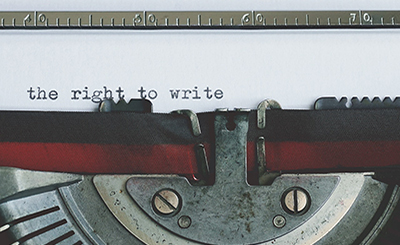
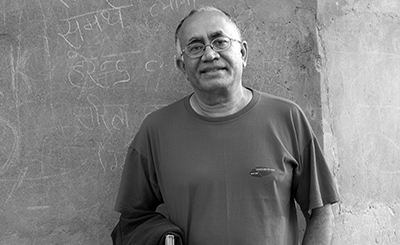

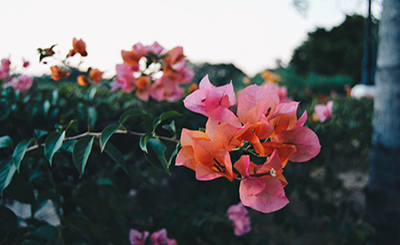
THUMBS.jpg)